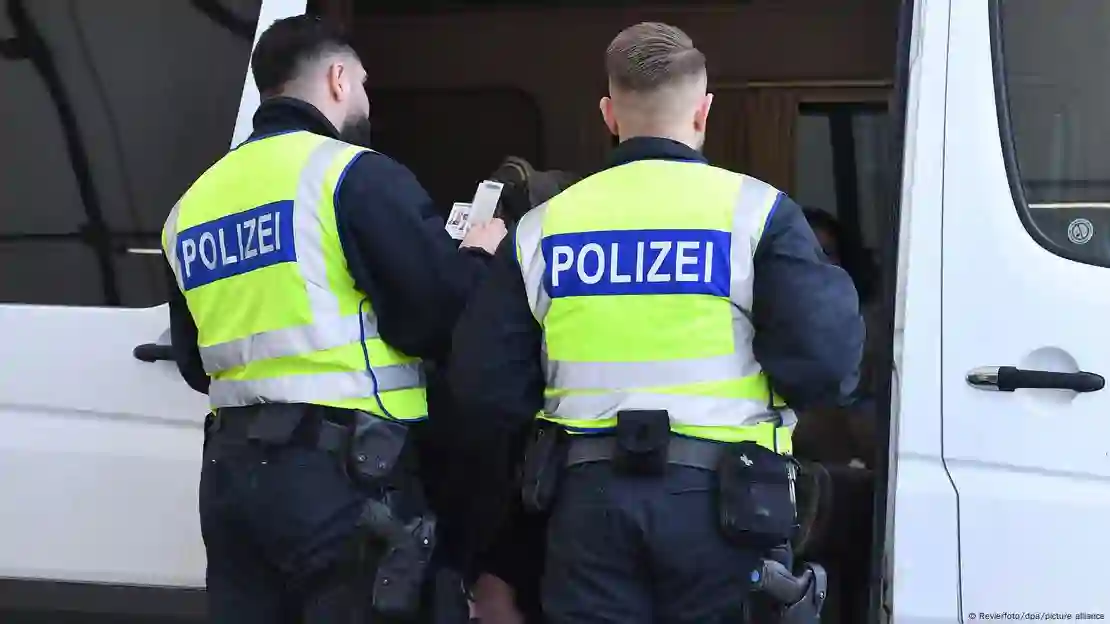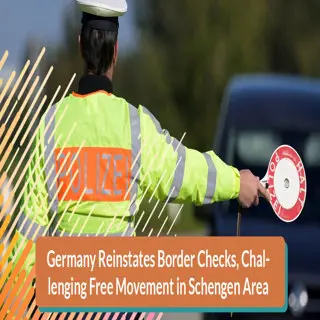Germany has reinstated border checks for Schengen visa holders, citing a 78% rise in irregular migration and security concerns. The Schengen Area, established in 1995, allows passport-free travel across 27 countries. Germany’s move raises fears of broader European border restrictions.
Berlin, September 2024 — In a significant shift, Germany has announced the reintroduction of border checks for Schengen visa holders, marking a departure from the long-standing policy of free movement within the Schengen Area. This decision has raised concerns about the future of one of Europe's key pillars of integration — the Schengen Agreement, which has facilitated frictionless travel across much of the continent for decades.
Background of the Schengen Area
The Schengen Agreement was signed in 1985 between five European countries: Belgium, France, Germany, Luxembourg, and the Netherlands, as a response to growing demands for more integrated travel and trade in Europe. By 1995, the Schengen Area was officially launched, allowing passport-free travel across participating countries. Today, 27 nations, including non-EU members like Switzerland and Norway, are part of the Schengen Zone, making it one of the world's largest areas for free movement of people and goods.
The core aim of Schengen has been to eliminate internal border controls among member countries, boosting tourism, commerce, and cross-border employment, while strengthening security through shared information systems such as the Schengen Information System (SIS). Over the years, it has been hailed as a symbol of European unity.
However, this freedom of movement has faced increasing pressure, particularly during periods of crisis. In 2015, the migration wave saw several Schengen countries temporarily reintroduce border checks to manage the influx of asylum seekers. The COVID-19 pandemic further strained the Schengen system, as countries across Europe reinstated border controls to curb the spread of the virus.
Why Germany is Reintroducing Border Checks
Germany’s decision to bring back border checks highlights ongoing concerns over security, illegal immigration, and migration flows. According to the German government, the country is facing a significant increase in irregular border crossings, particularly along routes from Central and Southern Europe. These new measures are intended to better regulate migration and enhance security within the country, especially after reports of organized smuggling networks and asylum fraud.
In a statement, Germany’s Minister of the Interior, Nancy Faeser, defended the move, emphasizing the need to address rising concerns from German citizens about security and the pressure on public services due to the increasing number of refugees. She also cited the failure of some Schengen countries to enforce proper checks at the EU’s external borders, prompting Germany to take matters into its own hands.
Germany's action follows similar steps taken by Austria, Denmark, and France, which have also reinstated temporary border controls in recent years. This trend is driven not only by migration pressures but also by fears of terrorism, drug smuggling, and other cross-border crimes.

Growing Tensions Within Schengen
The reinstatement of border checks raises questions about the future of the Schengen Area and its fundamental principle of free movement. Critics warn that the continued use of such measures may lead to a domino effect, where more countries follow suit, potentially undermining the entire system.
European Union leaders are likely to discuss the implications of Germany’s decision at upcoming meetings, as they grapple with balancing national security interests with the broader goals of European integration. Some experts believe that without significant reforms to the Schengen Agreement and improved cooperation on external border management, the open-border system may face permanent changes or restrictions.
In the meantime, travelers from other Schengen countries may face delays and stricter scrutiny when entering Germany, adding new complications to what was once a seamless journey across European borders.






